What Trump did this week: Twitter feuds – naturally – and a shock loss for Roy Moore
The week began with the president accusing CNN of ‘fake news’, and moved through a tweetstorm with Kirsten Gillibrand and a damaging defeat in Alabama
Each week, Trump seems to make more news than most presidents do in a lifetime. The Guardian is keeping track of it all in this series, every Saturday
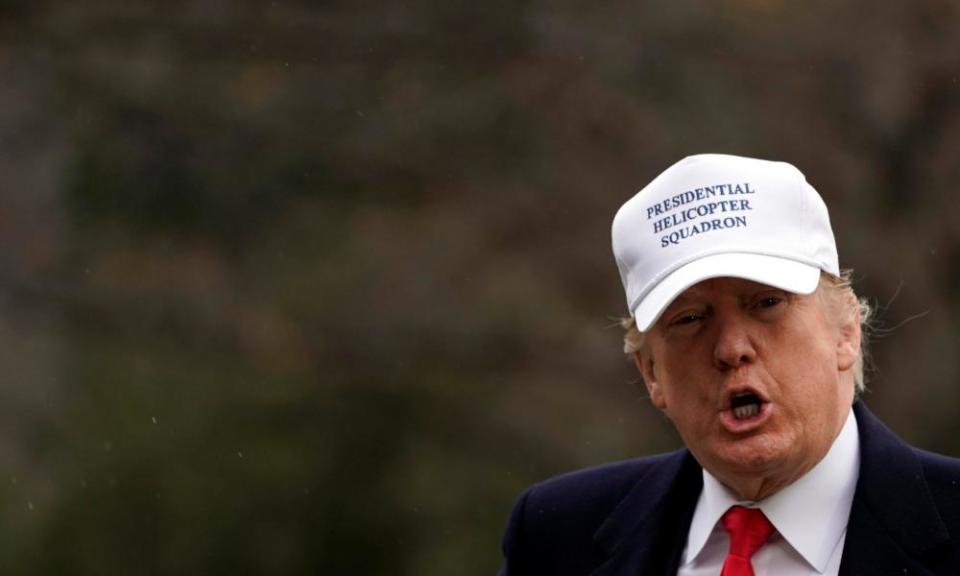
Last weekend
Donald Trump lashed out at the press on Saturday after CNN had to correct a report about hacked material being emailed to his son. Pointing out that the network’s slogan was “THE MOST TRUSTED NAME IN NEWS”, Trump suggested an alternative tagline: “THE LEAST TRUSTED NAME IN NEWS”.
But he took a hit from an unexpected quarter on Sunday when his usual loyal ambassador to the UN, Nikki Haley, said she thought the numerous women who have accused Trump of sexual harassment or assault “should be heard”. The White House’s official position is that they are all liars.
Monday
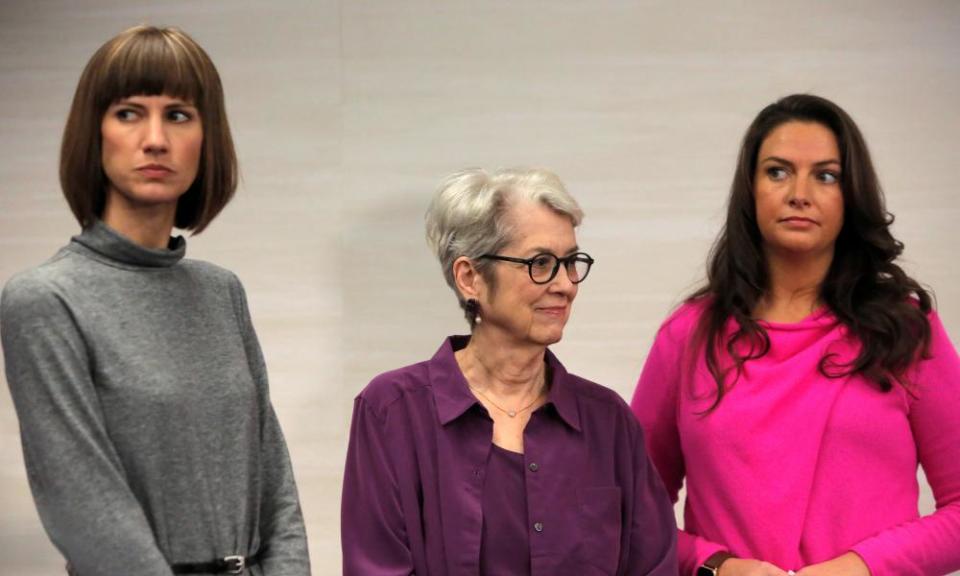
On Monday a group of those women demanded Congress open an investigation into the president, hoping that in the light of the post-Weinstein #metoo movement their stories would gain a greater hearing. “Let’s try round two,” one of them, Samantha Holvey, said. “The environment’s different, let’s try again.”
The Pentagon also had bad news for Trump, announcing it would allow transgender people to enlist in the military beginning on 1 January, despite the president’s vocal opposition. Trump’s attempt to change military policy by tweet in July was not well received by the Pentagon, and numerous legal challenges have followed which the administration fears it will lose.
Tuesday
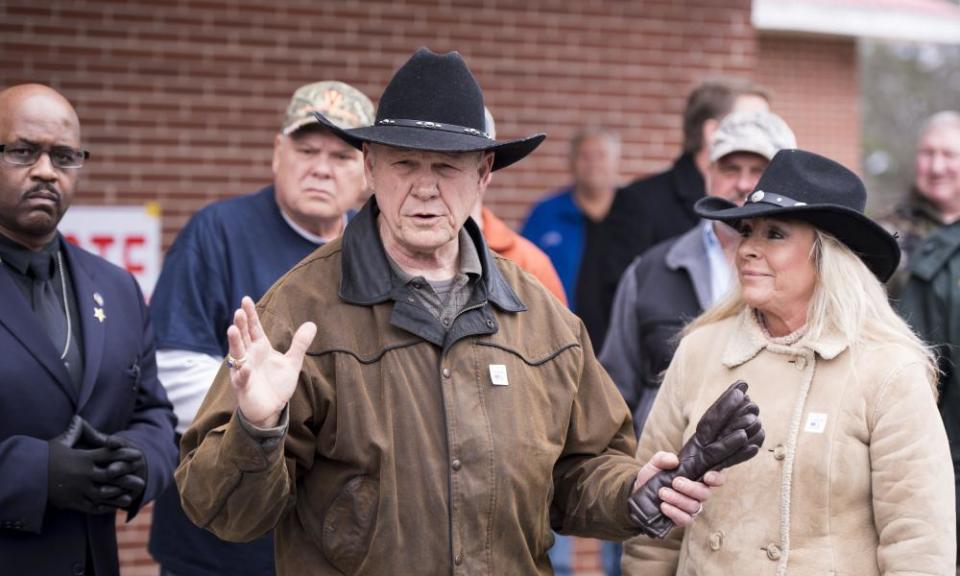
On a busy day for Trump, he ensured his accusers achieved their aim of greater publicity for their allegations by making what many saw as a crude sexual innuendo about one of their congressional supporters, Democratic senator Kirsten Gillibrand, who has said he should resign over the claims. (Male senators have said so too, but Trump left them alone.) Gillibrand “would come to my office ‘begging’ for campaign contributions not so long ago (and would do anything for them)”, Trump tweeted.
Meanwhile, his lawyer, somewhat absurdly, called for a second special counsel to investigate the special counsel investigating Trump and Russia (perhaps a third one should investigate the special counsel investigating the special counsel), as secretary of state Rex Tillerson defied his boss to call for talks without preconditions with North Korea. Trump has said such talks would be useless: “Save your energy Rex, we’ll do what has to be done!”
All that came before the shock defeat of Roy Moore in the Alabama special election. The controversial Republican former judge, who had been accused of sexual misconduct including against a girl of 14, had been abandoned by most of the GOP establishment – but Trump had made a point of personally backing him, including with a rally disparaging one of his accusers, as well as a full-throated tweet. (“VOTE ROY MOORE!”) Moore’s own final push had all the absurdity and offensiveness of peak 2016-era Trump – Moore’s wife attempted to rebut accusations of antisemitism by saying “our lawyer is a Jew” and a Vietnam buddy recalled the time he and Moore had accidentally wound up in a brothel featuring “very young” girls – but it failed to replicate one key element: victory at the polls.
Wednesday
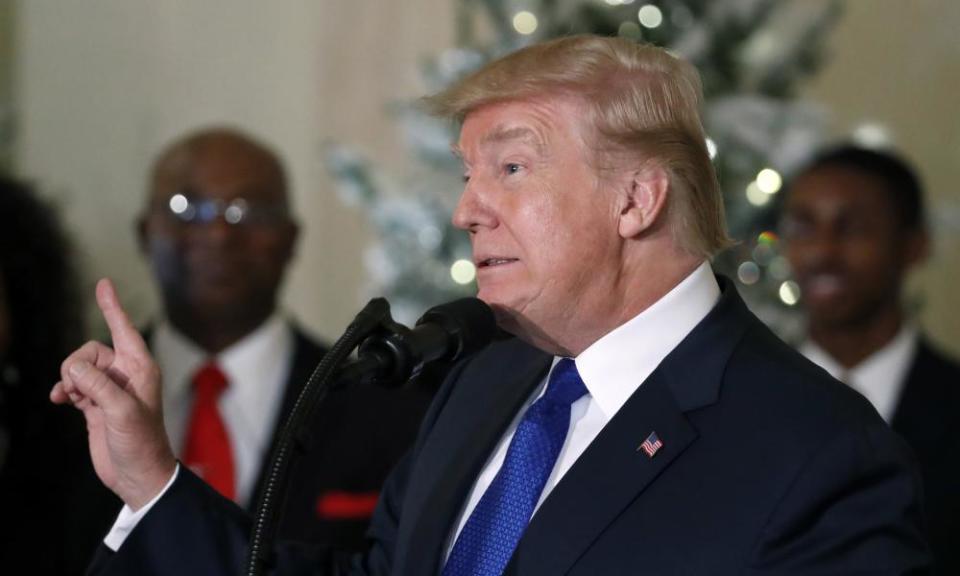
Trump tried his best to spin his way out of association with the defeat on Wednesday, claiming he had known all along the hardline religious conservative would lose (“I was right!”) and pointing out that he had backed Moore’s opponent Luther Strange in the primary. Yet the fact remained that Trump had endorsed the losing candidate twice in the same election, and the populist crusade of his former strategist Steve Bannon had suffered a possibly fatal blow in its attempts to elbow aside the establishment wing represented by Senate majority leader Mitch McConnell. Democrats were jubilant and began to fantasise about taking the House and the Senate in next year’s midterms.
Thursday

Also damaging was the loss of White House aide Omarosa Manigault Newman, one of Donald Trump’s few African American allies. After her departure under somewhat unclear circumstances was announced on Wednesday, Manigault Newman appeared on TV the next day to say she had “seen things that have made me uncomfortable, that have upset me, that have affected me deeply and emotionally, that has affected my community and my people”. On Friday she added that many of Trump’s comments had been “racially charged” and said Trump’s response to the far-right violence in Charlottesville had “absolutely” concerned her. With a future on the media far more probable than a continued career in politics, it seemed likely that a book deal that could reveal a troubling new perspective on the president’s attitude towards race might follow.
Friday
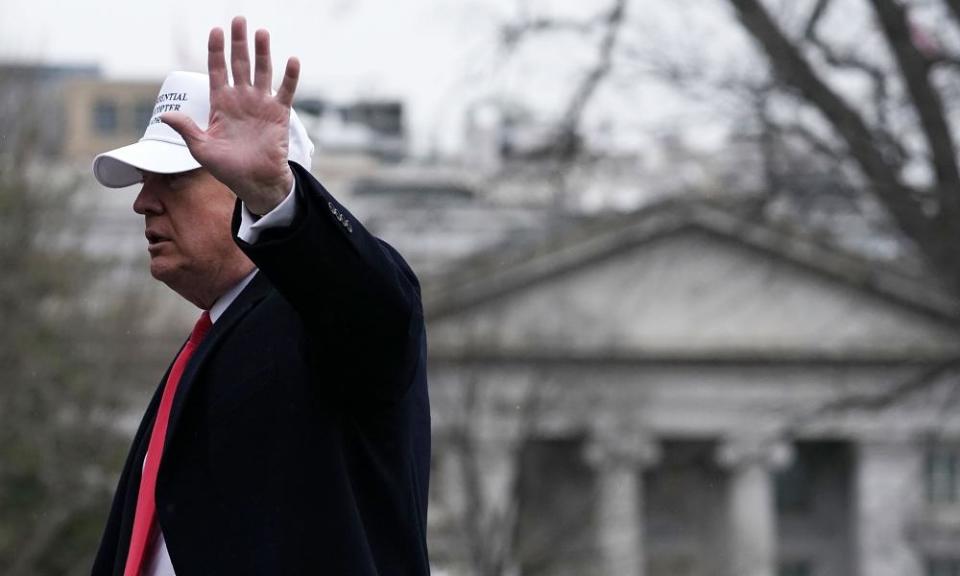
On Friday Trump returned to the idea – perhaps uniquely held by him – that foreign countries somehow try to get rid of their “worst people” by sending them to America. This strange fantasy first came up in his notorious campaign launch speech, and he picked up on it again in a speech to FBI recruits which touched on the green card immigration lottery. “They give us their worst people,” Trump lamented, as if imagining some calculating dictator sending forth his baddest hombres to destroy the US from within. “They put ‘em in a bin but in his hand, when he’s pickin’ ‘em, is really the worst of the worst,” he continued, confusingly. “‘Congratulations, you’re going to the United States, it’s OK.’ What a system, lottery system.”
In fact the US Department of State – not the foreign countries the applicants come from – chooses who has been accepted by the lottery. What a system.

